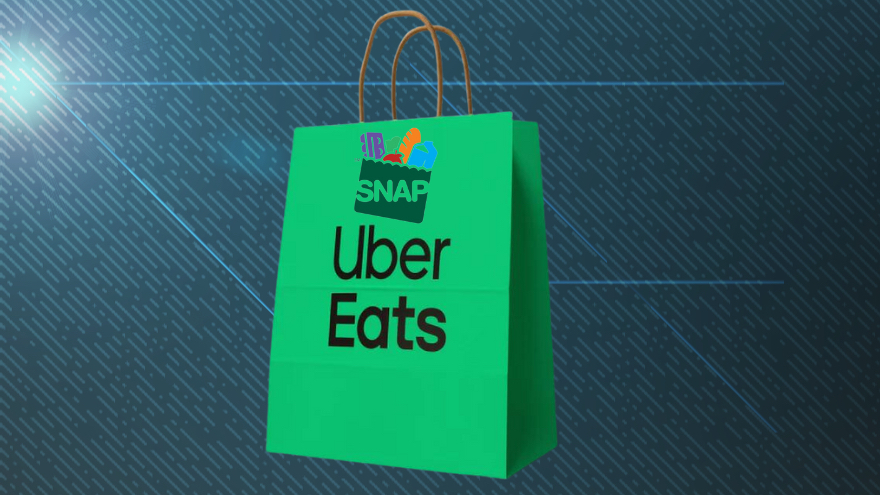SNAP recipients will be able to use their benefits to cover the cost of grocery deliveries from Uber Eats in 2024.
Since the onset of the COVID-19 pandemic, several food and grocery delivery services developed and expanded methods of accepting federal food assistance credits.
“We know that online food delivery can have a meaningful impact in reducing barriers to fresh groceries, especially for the most vulnerable–including people living in food deserts, seniors, and those facing disabilities or transportation barriers,” said Uber in a statement on Sept. 20. “Helping to improve access to quality food is incredibly important to our work at Uber and we’re proud to use Uber’s technology and extensive local delivery networks to offer SNAP recipients the ability to use their benefits to access fresh groceries conveniently from our app in 2024.”
The United States federal government has been offering food assistance programs since 1939 when it launched the Food Stamps Program. Approximately 20 million people used the FSP at some point during its first four years. In 1943, the FSP was terminated “since the conditions that brought the program into being – unmarketable food surpluses and widespread unemployment – no longer existed,” per the United States Department of Agriculture.
Food assistance programs were reestablished over the following decades and, in 2008, the 1997 Food Stamp Act was renamed SNAP – the Supplemental Nutrition Assistance Program following the passage of the 2008 Farm Bill. The bill added an additional $10 billion to federal food assistance programs for the next decade.
“SNAP provides important nutritional support for low-paid working families, low-income older adults (60 years and older) and people with disabilities living on fixed incomes, and other individuals and households with low incomes,” reports the Center on Budget and Policy Priorities. “About two-thirds of SNAP participants are in families with children, and over one-third are in households with older adults or people with disabilities. After unemployment insurance, SNAP is the most responsive federal program that provides additional assistance during and after economic downturns.”
In 2022, 41 million low-income Americans received SNAP benefits monthly and the program totaled $119 billion – or 1.9% of the federal budget.
Other food delivery services already accept SNAP benefits. In 2020, Instacart partnered with the grocery store chain ALDI to accept government payments online and provide grocery delivery to the beneficiaries. The service was initially launched in 29 states and Washington D.C.
“As the country continues to grapple with COVID-19, we recognize the important role Instacart and its retail partners play in making same-day grocery delivery and pickup available to more people nationwide,” Andrew Nodes, the vice president of retail at Instacart, said in a press release. “We’re proud of the work we’ve done with ALDI and the USDA Food and Nutrition Service to unlock EBT SNAP online payments for more families, and we look forward to continuing to expand this important program.”
DoorDash rolled out its SNAP payment program in June. The benefits were accepted for deliveries from Safeway, Albertsons, ALDI, and select Meijer and 7-Eleven stores. Users can use online SNAP payments to buy eligible items.
“At checkout you can use your SNAP/EBT card to pay for eligible food items and purchase all other items in your cart with an alternative payment method such as a credit card, debit card, or gift card,” DoorDash noted on its website.
In addition to the new SNAP program, Uber wants to establish a similar program by reaching an agreement with Managed Medicaid and Medicare Advantage plans that will allow people with flexible spending accounts (FSA) and Flex cards to buy fresh produce and other health foods.
